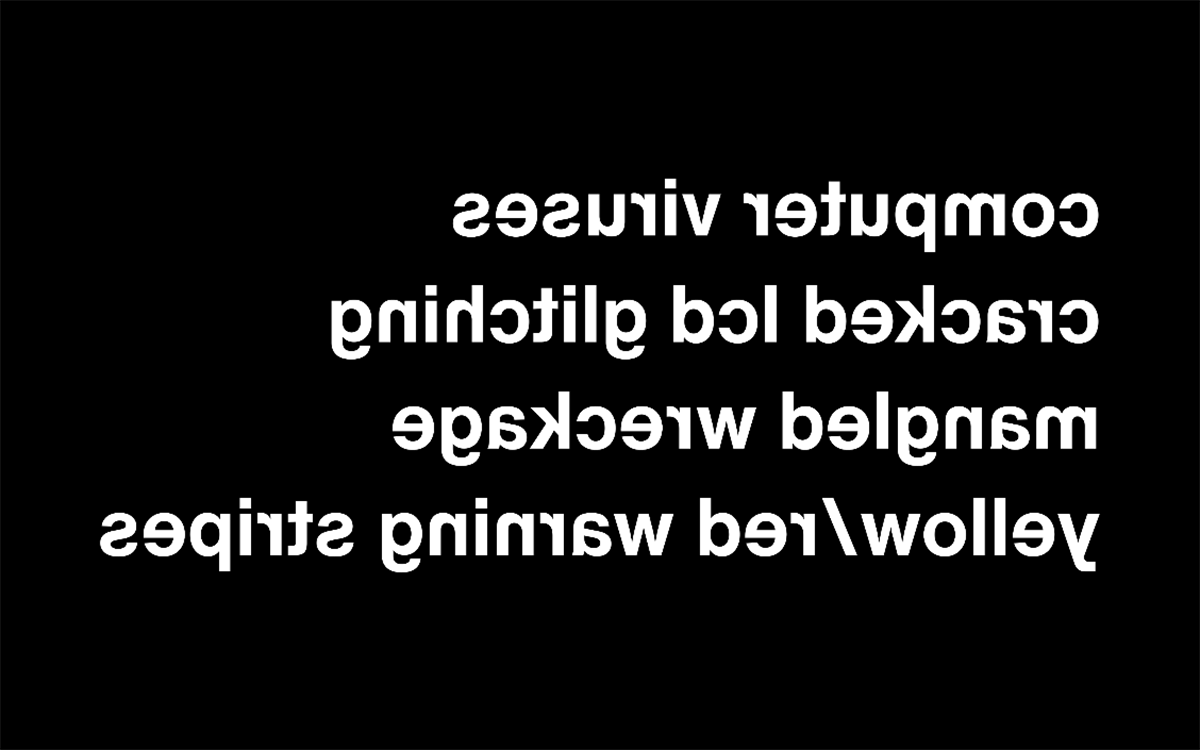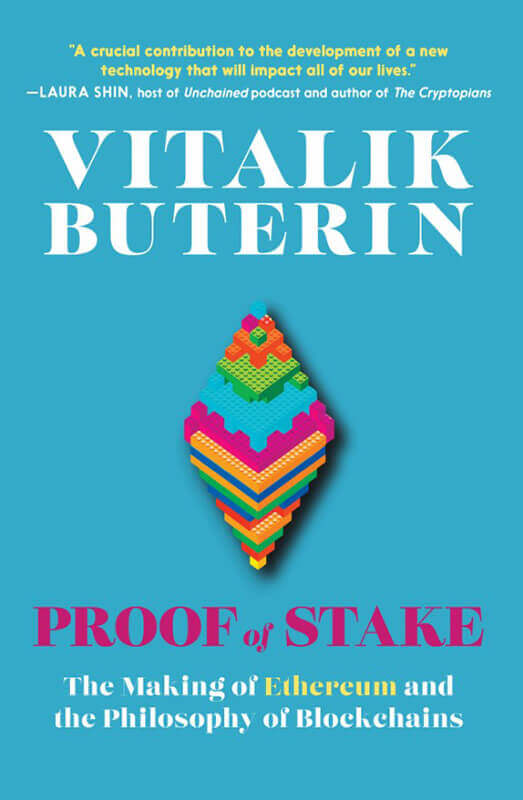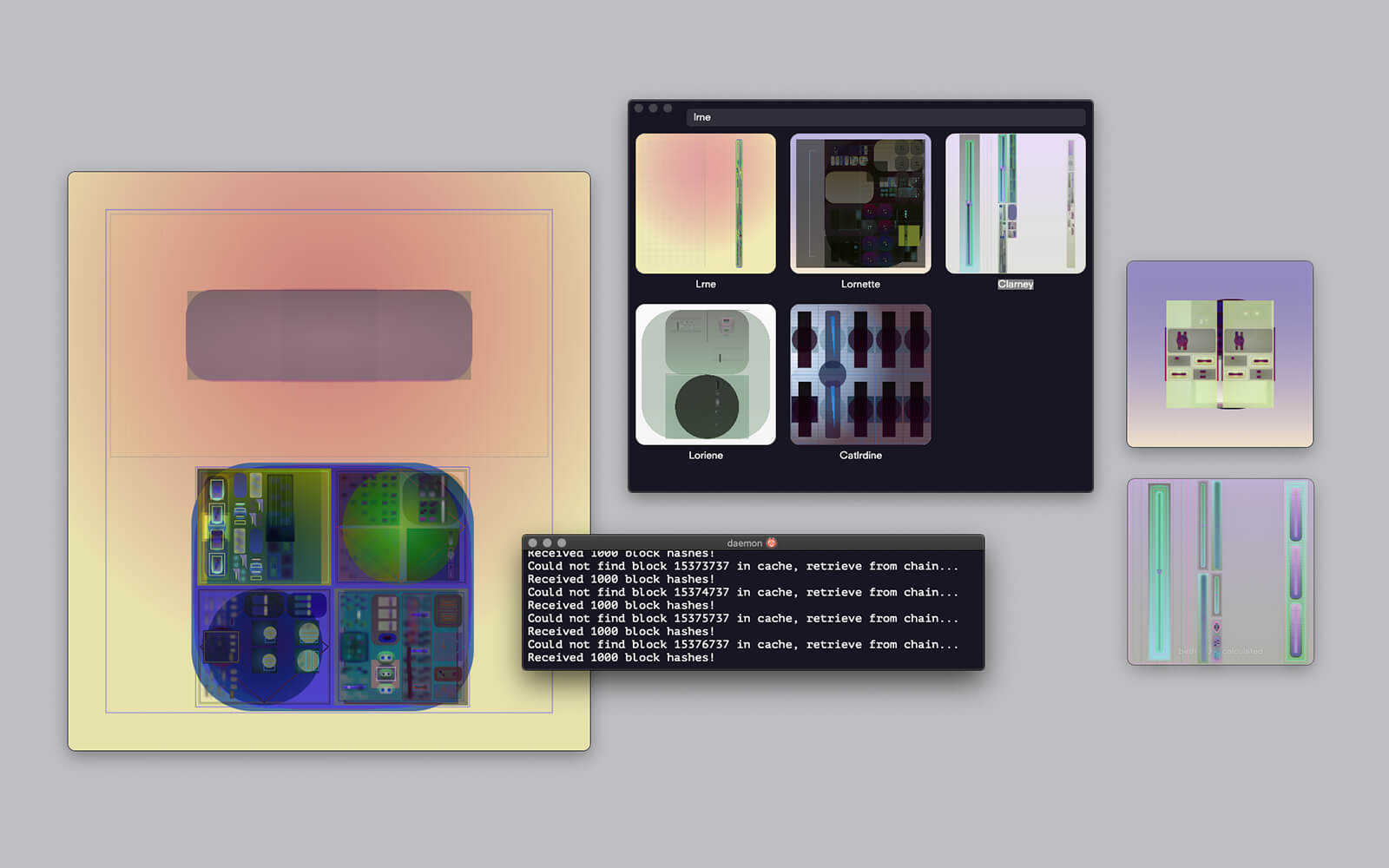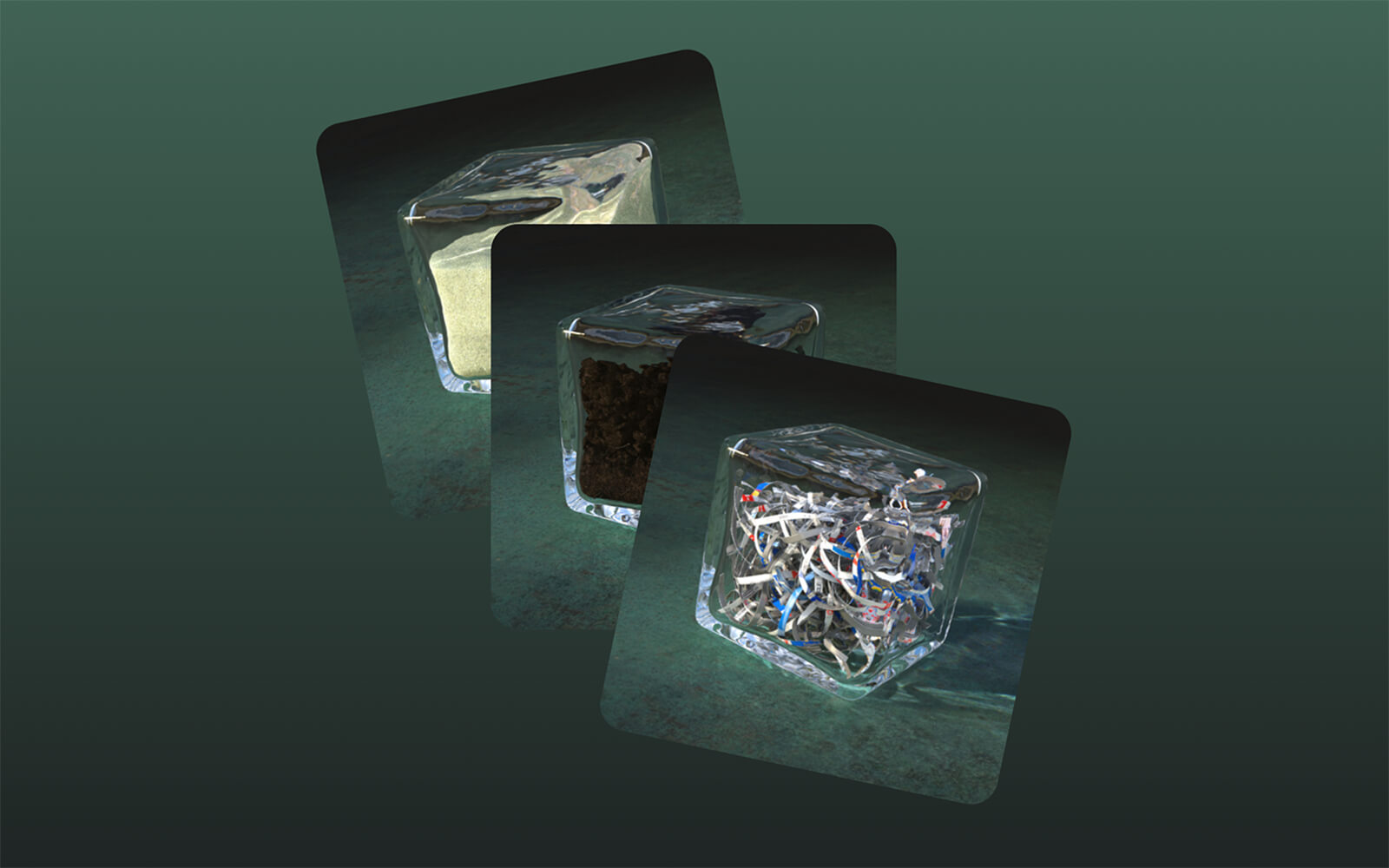1,570 days, 2,406 entries ...
Newsticker, link list, time machine: HOLO.mg/stream logs emerging trajectories in art, science, technology, and culture––every day
“It is really disheartening to watch artists I respect run to do ordinals. Can’t help but remember the rough convos we had around energy use and carbon load of ETH.”
“The growing awareness that unchecked centralization and over-financialization cannot be what ‘crypto is about,’ and new technologies like second-generation privacy solutions and rollups are finally coming to fruition, present us with an opportunity to take things in a different direction.”
Generative art NFT platform fxhash announces a $5 million seed raise with venture capital firms and angel investors including Tezos Foundation, PunkVenturesDAO, Casey Reas, and thefunnyguys (Le Random). The funds will be used to hire more team members, support development of a 2.0 release (integrating Ethereum) and tools for art institutions, and bolster the platform’s mission of “empowering anyone, anywhere, to artistically express themselves with code,” they tweet (image: Zancan Garden, Monoliths, 2021).

Burak Arikan Maps Power Structures, Financial Flows, and Networks of Influence
The New York-based artist discusses the collector ecosystem revealed by his ‘meta NFT’ Social Contracts (2023) and the evolution of peer-to-peer economies

“Nobody said it was a democracy. The ‘will of the community’ is the will of whichever cartel or whale has the voting majority, not the will of the disgusting peasantry.”
Rhea Myers’ solo exhibition “The Ego, and It’s 0wned” opens at Nagel Draxler’s Crypto Kiosk in Berlin, offering blockchain-based “symbolic forms” that ponder property, representation, identity, and secrecy. In the titular piece (2023), for example, the British artist and hacker tokenizes her brain wave recordings while Type Opposite Images (2023, image) reverses colourful Vaporwave tropes. Also on view: new NFT editions of iconic Ethereum works that Myers created in 2014.

Mario Santamaría’s solo show “Gárgola” opens at Centre d’Art la Panera, Lleida (ES), wedging two metaverses into one exhibition space. An architectural structure marks the exact plot of land the Spanish artist purchased in Next Earth, a virtual 1:1 reproduction of the planet, while suspended screens render a 13,5 billion light-years drop (the fall, 2022) into the Voxels Ethereum virtual world. A winding liquid cooling system further reminds viewers of computing’s (very real) materiality.

Vitalik Buterin
Proof of Stake

“And we finalized! Happy merge all. This is a big moment for the Ethereum ecosystem. Everyone who helped make the merge happen should feel very proud today.”
“Ditch the pronouns and hit the gym, then you’ll realize the importance of Proof of Work.”
“He is suspected of concealing criminal financial flows and facilitating money laundering through the mixing of cryptocurrencies through the decentralized Ethereum mixing service Tornado Cash. Multiple arrests are not ruled out.”
Dutch crypto artist Harm van den Dorpel releases the Mutant Garden Seeder desktop app to the general public. The software, previously exclusive to holders of his well-known NFT project, helps “aid the greater plan of decentralisation,” the website states. “This ‘read-only sidechain’ synchronises to Ethereum Mainnet, and lets your mutants live and grow on your own local computer.” Released in 2021, Mutant Garden Seeder comprises 512 generative unique Ethereum NFTs that evolve over time.

“The current Ethereum price crash is doing more for the environment than the planned move to PoS. Compared to just three weeks ago, estimated carbon emissions related to the ETH network have gone down by around 30,000 metric tons of CO2 per day.”
Kyle McDonald announces Amends (2022), a project mitigating NFT marketplace emissions. When Ethereum abandons the proof-of-work consensus mechanism later this year, three digital sculptures (CGI by Robert Hodgkin) will be auctioned on Open Sea, Rarible, and Foundation. Priced at $17 million total (and rising), proceeds will go to air and ocean carbon capture projects. Owners can exchange their digital sculpture for a physical one—if they burn their NFT.

“Decentralized Society: Finding Web3’s Soul,” a whitepaper by researchers E. Glen Weyl and Puja Ohlhaver, and Ethereum co-founder Vitalik Buterin is published. In it, the trio describe a web3 where tokens denoting “commitments, credentials, and affiliations” are “soulbound” to individuals, and these non-transferable identity markers are used to govern more efficiently (e.g. DAO vote-weighting based on expertise) and to generate more equitable datasets (opt-in with privacy controls). Moving beyond ‘trustless’ DeFI frameworks, they propose decentralized sociality (DeSoc) “which encodes trust networks that underpin the real economy today.” Drawing on the community and infosec foibles in crypto over the last decade, they extend the model to prevent concentrations of power, and propose checks and balances to protect its decentralization.
The Processing Foundation, a champion of software literacy within the visual arts and developer of the eponymous creative coding toolkits, announces that it received a record-breaking $10 million in donations in 2021, a majority of which came from artists donating cryptocurrency. This generous support has “allowed the Foundation’s work to become sustainable for the first time,” writes Executive Director Dorothy R. Santos, citing particularly generous artists such as Joshua Davis, Monica Rizzolli, Jared Tarbell, and Lia. Santos further announces that the foundation’s board decided to suspend new Ethereum donations over environmental concerns. Support for Tezos, a more energy-efficient cryptocurrency, will continue.
“Making more items in the crypto space ‘soulbound’ can be one path toward an alternative, where NFTs can represent much more of who you are and not just what you can afford.”
What comes after platform capitalism? An assemblage called ‘hyperstructures,’ according to Jacob Horne. In an essay published on his website, the co-founder of the NFT marketplace aggregator Zora outlines the frameworks he sees emerging around crypto protocols. Inspired by the utopian architecture of Paolo Soleri, Horne argues the permissionless nature of hyperstructures generates low-friction exchange, yielding more equitable outcomes for participants (versus web 2.0 platforms where the user is the product). Is this the frothy rhetoric we’ll hear as money flows into web3? Yes, but Zora’s manifesto claim that “platforms hold our audiences and content hostage” is not wrong.
“Starting today we are reviewing if and how our current policy on crypto donations fits with our climate goals. And as we conduct our review, we will pause the ability to donate cryptocurrency.”
Daily discoveries at the nexus of art, science, technology, and culture: Get full access by becoming a HOLO Reader!
- Perspective: research, long-form analysis, and critical commentary
- Encounters: in-depth artist profiles and studio visits of pioneers and key innovators
- Stream: a timeline and news archive with 1,200+ entries and counting
- Edition: HOLO’s annual collector’s edition that captures the calendar year in print
